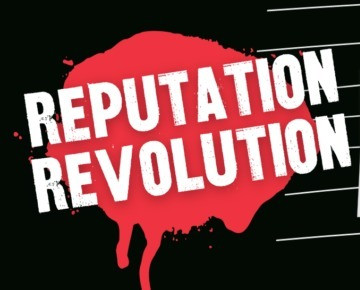
Henry Kissinger, who turned one hundred years old this year, is described as “an American diplomat, political scientist, geopolitical consultant, and politician, who most notably served as United States Secretary of State and national security advisor” in the mid-1970s. Those are the bare facts about him, but his reputation varies from being “America’s greatest statesman, capable of making smart sacrifices for the greater good” to “he has been a careless and callous leader, responsible for perpetuating war and great crimes against humanity to the detriment of the US national security.” When it came to discussing reputation, Kissinger in turn opined, “Ninety percent of the politicians give the other ten percent a bad reputation.” Was he one of the ten or the ninety percent?
Of course, as John Wooden (along with many others in slightly different words) put it, we should “Be more concerned with character than reputation. Character is what you are, reputation is what people think you are. However, schools often do still tend to be concerned about their reputation and do everything to create or promote a positive good reputation. Generally, they look to establish their reputation on their results (varying between academic and sporting results) but also on the behaviour of their pupils (smartness, politeness, respect) founded on their discipline.
When it comes to discipline, often with the cries of former pupils harking back to the “good old days” of tough discipline (which may be a euphemism for somewhat harsher actions), schools may proudly advocate their zero tolerance policy, be it with regard to drink, drugs, sex or the like, indicating that if anyone is found guilty of such behaviour he will be removed immediately from the school. Schools are proud of their reputation of firm, hard, decisiveness in stamping out evil.
In many ways such a policy might make sense. Place it in contrast to what happens in schools overseas where a teacher is not allowed to ask a pupil to leave the classroom until they have had four warnings. All that means is that the pupil has four ‘freebies’ to misbehave before they behave; why should they be given any warning, when they know what is expected of them?
Where that falls foul is that we are looking there at punishment, not at discipline; discipline (from its Latin root of ‘disco’ meaning to learn) is about learning and simply removing a person from the environment is not bringing about learning. It has simply only removed the problem from the school. Furthermore, the fact that a school has to exclude more pupils for the same offence would suggest that zero tolerance is not working. Equally, excluding a child from school is not necessarily (or often) a guarantee that the child will change his ways. Schools could therefore earn a greater reputation by keeping the child, working with the child, helping the child to recognise his mistakes and to improve his behaviour, at the same time as addressing the whole school on the matter. There needs to be a revolution, a complete turnaround in what the school’s reputation is based on. Their reputation can improve by giving a second chance to miscreants, within the framework of counselling.
Indeed, a further revolution could be seen if instead of excluding a child, a ‘Time Out’ is called (as in some sports), which is providing a breather to assess what is happening and then address it. Often schools suggest a child receives specialist counselling, but when it is squeezed in between the child’s schoolwork, sports commitments and the counsellor’s diary, the process can take far too long. Rather we should take ‘Time Out’ away from school and seek the necessary counselling (with more chance of finding counselling sessions in mornings) before even returning to school – the change in behaviour is far more important in the long run than any potential loss in academic studies. The child can squeeze in any studies around their counselling, rather than the other way around. A further benefit to all, school and child, the ‘Time Out’ is not giving the child a black mark against his name.
D.L. Moody once said that “If I take care of my character, my reputation will take care of itself” — that is what we are advocating. Margaret Mitchell stated that “With enough courage, you can do without a reputation.” Schools must have courage to revolutionise their reputation by working on character. After all, Warren Buffett said that “It takes 20 years to build a reputation and five minutes to ruin it. If you think about that, you’ll do things differently.” It is time to do things differently.
- School of sport: SCOFF AT THE FROTH
- Reputation revolution
- Former US Secretary of State Henry Kissinger dies aged 100
Keep Reading
Tim Middleton is the executive director of the Association of Trust Schools [ATS]. The views expressed in this article, however, are solely those of the author in his private capacity and do not necessarily represent the views of the ATS.
Email: [email protected]
website: www.atschisz











